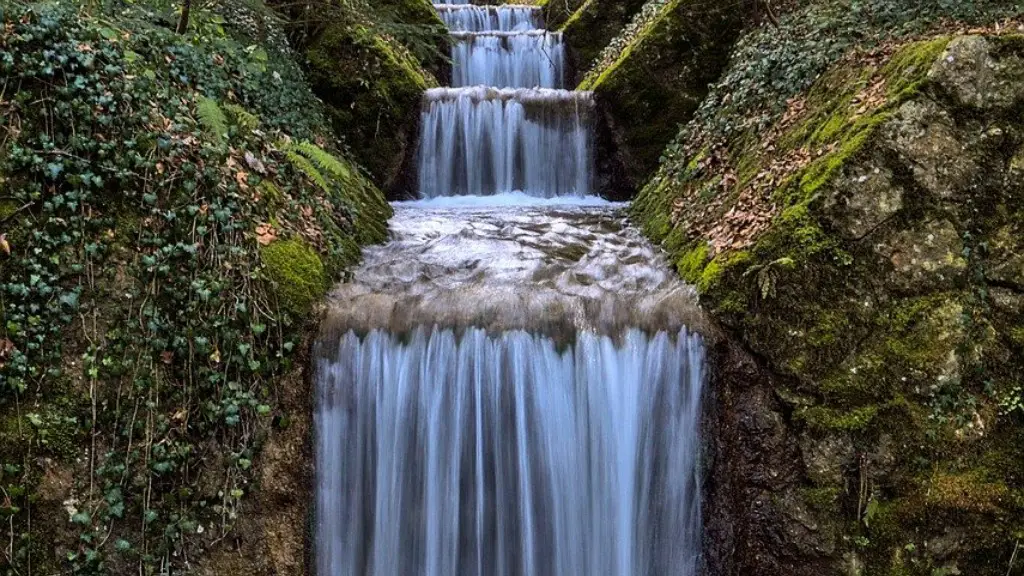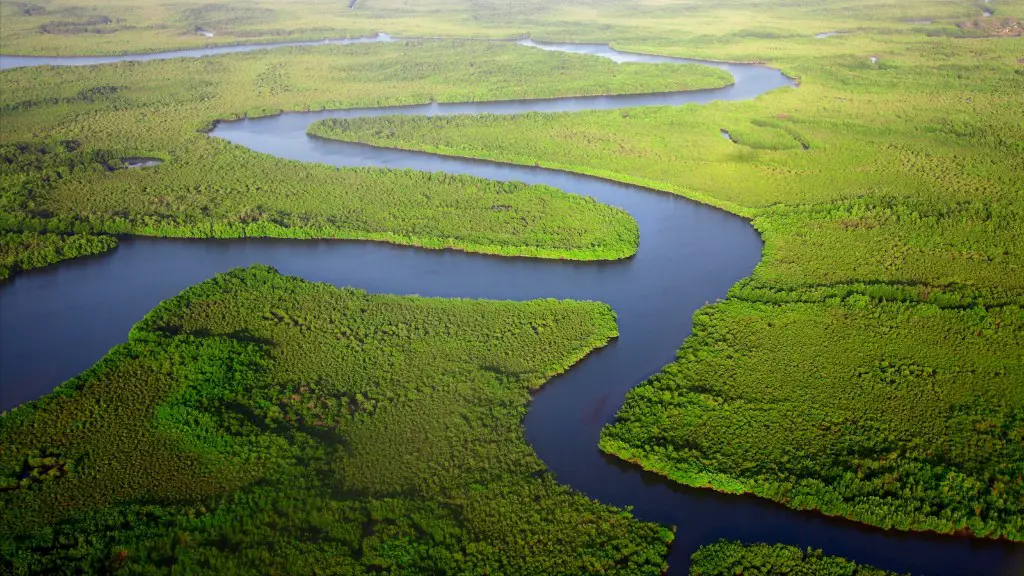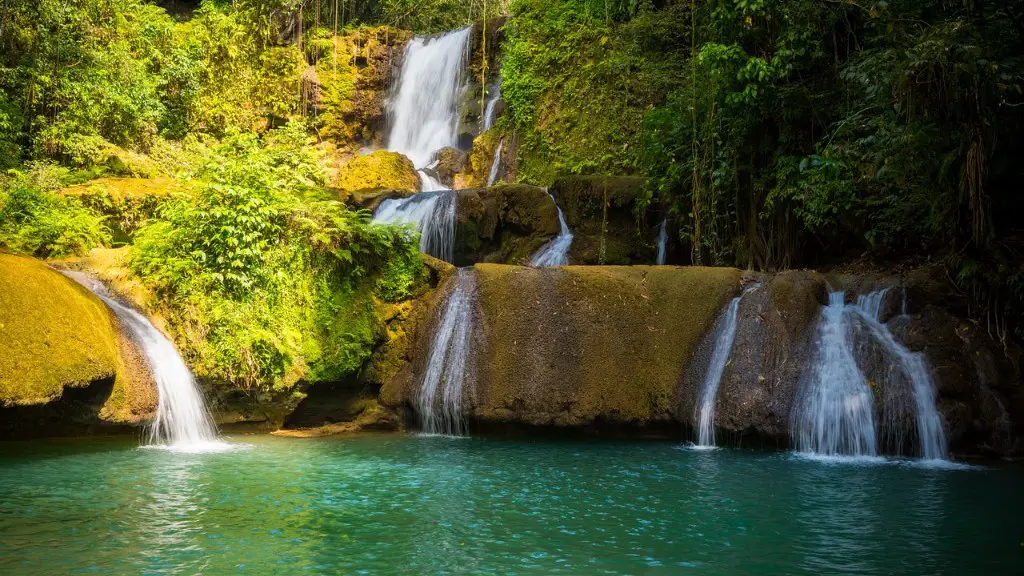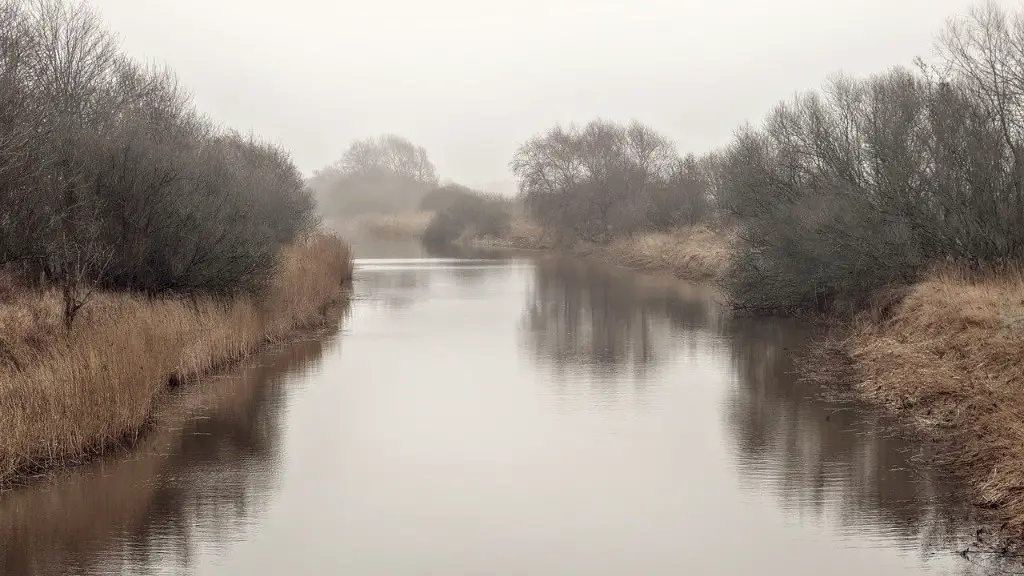As one of the longest U.S. rivers, the Mississippi is an amalgam of goods, goods, and people. But, what is shipped along the Mississippi River? The answer to this question has been largely influenced by the industries that have grown up around this great river. From raw materials to manufactured products, the Mississippi River has been a vital transport route for goods for centuries.
The river carries goods from many industries including agriculture, petrochemicals, manufacturing, and tourism. Agricultural products carried include crops harvested from local farms as well as foodstuffs from around the world. From grain and hay to fruits, vegetables, and other foodstuffs, the river is a major pathway for agricultural goods. Petrochemicals are also transported along the Mississippi. This includes fuels, oils, and gas. Manufactured goods are also moved by barge along the river and this includes steel, lumber, paper products, and electronics. The river also serves as an important avenue for tourism. Cruises and ferry rides are popular forms of leisurely transportation along the Mississippi.
One of the most commonly used modes of transport along the Mississippi is barges. A barge is a large flat-bottomed vessel that is typically pushed or pulled by other boats. The barges may be towed by a tugboat or propelled by their own engines. Barges are capable of carrying massive cargo loads and are used for a variety of freight including dry bulk cargo, liquid cargo, and containerized cargo. Such cargo may be shipped between ports along the Mississippi or between the river and ports in other areas. Government agencies and transportation companies work together to monitor and maintain navigation systems along the Mississippi and to improve barge safety.
The Mississippi River is also a gateway for cargo to be shipped from the Midwest to the rest of the country. Railroads are used to transport cargo from locations along the Mississippi to other parts of the United States. Railroads have historically been used to move goods and supplies, and their use has grown in recent years. Railroads can move large volumes of cargo quickly and reliably, making it an attractive option for shipping large loads.
Today, the Mississippi River is not just a transportation route, but also a source of power and energy. Many industrial sites along the river rely on hydroelectric power to meet their energy needs. The river also serves as a major source of drinking water for many cities and towns along its banks. The river is also home to many fisheries and aquaculture operations.
Economic Impact of the Mississippi
The Mississippi River has had a major economic impact throughout the United States. Due to the river’s transportation capabilities, many local businesses have been able to expand and become larger businesses, creating jobs and economic growth. In addition, trade between states along the Mississippi has increased as goods are transported more readily to different areas. The river also serves as an important source of clean water and power. This has enabled cities to develop and grow. The Mississippi River is responsible for an estimated 10 percent of U.S. GDP and is an integral part of the American economy.
Environmental Impact of the Mississippi
The Mississippi River carries both economic opportunities and environmental risks. Despite the fact that it is a major shipping route, the river is closely monitored for water pollution. The Environmental Protection Agency (EPA) regularly monitors water quality in the river and enforces regulations to keep it clean. In addition, local organizations, such as the Mississippi River Network, are dedicated to restoring and protecting the river’s ecology.
The river also supports a diverse ecosystem of plant and animal life. Several species of fish, birds, and reptiles live and breed along the river. This includes numerous endangered species, such as the Pallid sturgeon and the American paddlefish. In addition, the Mississippi River is home to many migratory birds, including bald eagles, ospreys, and herons. Furthermore, the river supports a variety of aquatic plants, which provide food and shelter for other species.
Despite the fact that the river carries a variety of ecological risks, there is still great potential for it to provide economic and ecological benefits. By understanding the importance of the Mississippi River and its impact on the economy and environment, we can develop policies and initiatives to both protect and utilize it.
The Human Impact of the Mississippi
The Mississippi River has also served as an important avenue for human transportation. People have been travelling the river for centuries. The river has long been an important cultural and social resource in the United States.
The Mississippi River has provided navigation and transportation for traders, merchants, travelers, and tourists since the early days of the United States. Riverboats were used by traders, merchants, and immigrants to travel up and down the Mississippi in the 19th century. Today, the river provides both transportation and recreation. Tourists may take cruises along the river, visit ports, and partake in other recreational activities.
The river has been a lifeline for many people living along its banks. Farmers have used the river for irrigation, transportation, and for fishing. Towns and cities have sprung up along the river, and the river has spurred economic growth in these areas.
The Mississippi River has been an integral part of American culture and history. It has provided many with jobs, transportation, and recreation. It has also been an important source of water and energy. However, it is important to remember that the river must be managed properly in order to protect the environment, ensure safety, and promote economic development.
Preservation of the Mississippi
The Mississippi River is an important resource, but it is also fragile and needs protection. Many organizations and government agencies are dedicated to protecting and preserving the river. The U.S. Army Corps of Engineers is responsible for managing and regulating the river, ensuring that it is navigable and safe. It also monitors river levels and works to protect against flooding.
In addition, many conservation and advocacy groups are devoted to protecting the river. These groups are working to raise awareness about the importance of preserving the Mississippi and to create policies aimed at its preservation. They are also involved in restoring the river’s ecology and creating public access points along its banks.
The Mississippi River is an important resource for the United States, and preserving it is essential. Through conservation and education, we can continue to protect and utilize this vital river for generations to come.
Conclusion
The Mississippi River is a vital transportation route for many industries, an energy source, and a source of recreation. It has been an integral part of American history, culture, and economy. However, it is also fragile and needs to be protected. Through proper management, conservation, and education, we can ensure the continued protection and preservation of the Mississippi River.




